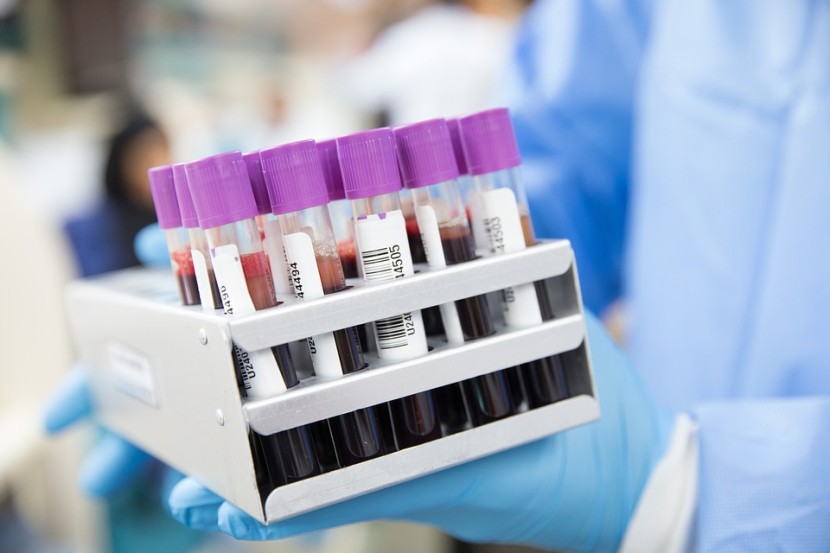
Researchers at John Hopkins University in Baltimore are experimenting with the blood of the recovered patients of the coronavirus because of the absence of vaccines or antiviral drugs, said that there might be a hidden cure in them.
The convalescent serum is the process of obtaining blood from the recovered patients of the coronavirus, it said to have rich antibodies against it.
Scientists tried the blood transfusions from the survivors of the Spanish flu epidemic in 1918 that led half-percentage drop of death tolls and later was also used to treat polio and measles outbreaks decades ago.
Dr. Arturo Casdevall, chair of the molecular microbiology and immunology department at Johns Hopkins Bloomberg School of Public Health, said that blood transfusions are no longer in favor because of the modern vaccine science and antiviral drugs that are used today.
After learning that a new virus was spreading rapidly across China, Casdevall told his fellow doctors that they should try blood transfusions once again.
"I'm an infectious disease doctor who is interested in history, I knew the history of what was done in the early 20th century with epidemics. They didn't have vaccines then, they didn't have any drugs then - just like the situation we face now. But physicians then knew that, for certain conditions, you could take the blood of the immune and use it to prevent disease or treat those who became ill." Casedevall said.
Casadevall and his colleague, Dr. Liise-anne Pirofski, discussed in the Journal of Clinical Investigation on Friday, that collecting blood samples from recovered coronavirus patients is the best way of treating the coronavirus or at least finding a better treatment that can be developed.
Severe acute respiratory syndrome or SARS, almost the same as the coronavirus, and was treated by the doctors in China in 2003, they used plasma from the recovered patients helping 80 people suffering from SARS. There are some guidelines in using donated plasma in treating patients with Ebola virus, made by The World Health Organization (WHO).
A top Food and Drug Administration official said that convalescent plasma might help cure people who are infected with the coronavirus at the interview with Stat News last month. Casadavell said that the said treatment is not a cure, it might lessen the people who get infected by the coronavirus.
Researchers around the globe are developing antiviral drugs for the coronavirus, it may take months or years to make, the federal officials said. Hospitals only have ventilators to treat patients who are suffering from respiratory failure due to coronavirus.
Dr. Jeffrey Henderson, an assistant professor of medicine and molecular microbiology at the Washington University School of Medicine in St. Louis said: "The approach definitely has merit, and what's remarkable about it is it's not a new idea; it's been with us for a good hundred years or longer, I think we don't know until we have experience and case reports with this particular disease whether it will be effective, but just based on its track record with a number of other viruses, I think it has a very good chance of working."
Johns Hopkins team is making their plan but needed the approval of the FDA, Casadavell said that they don't need to anticipate the problems since blood transfusions were used in the past, He hoped that the convalescent serum should begin within four to six weeks.
China has begun treating the COVID-19 patients with harvested plasma from recovered the patients of the coronavirus. And reported positive results with the blood transfusion.
Dr. Zhang Wenhong, the leader of a medical team said that the usage of harvested plasma will probably reduce the time needed to cure the coronavirus of ten to three days, in an interview with Al-Jazeera last week.
Casadevall told them that the convalescent serum should also be given to the front-line health care workers to protect them from the coronavirus.
To implement his plan, academic hospitals should work with blood banks to setup treatment guidelines and protocols. Johns Hopkins team began working weeks and started making guidelines that can be shared around the globe, Casadevall said.
At first, the U.S. public health officials should begin widespread testing because it is difficult to gather blood samples from the recovered patients of the coronavirus if they don't know whos' still are infected, Casadevall said. He also told the government authorities that they need to distribute the interstate shipment of blood products. He envisioned a situation where blood donation centers in Seattle, which has been at the focal point of the U.S. outbreaks for quite a long time, might be in a situation of sending gathered extra blood serum to different urban areas where outbreaks are still increasing.
And lastly, government authorities should help spread the news to people who've had the coronavirus and to the ones who recovered from it that they should donate plasma if they believe that it could support elder patients and health care workers.
"This is by no means a panacea, but at a time when the message has been, 'There's nothing you can do but wash your hands,' this is an opportunity to do something proactive that can help fight this," Casadevall said.
Related article: American Woman Recovers by Treating Her Coronavirus at Home








